Derive Value from your Data
The amount of available data and ability to collect that data continues to rise. As the volume and velocity of data increases, business demands the ability to derive value from its data. Lenovo database solutions are optimized for Microsoft SQL Server, SAP HANA, and Oracle databases to provide you faster time to insights.
Lenovo Database Solutions are engineered to provide:
- Performance – Realize fast query response times with optimized configurations
- Reliability - Lenovo servers provide the leading uptime among all x86 platforms
- Flexibility – Choose between on-premises and cloud deployment options
Benefits



Enhance SQL Server with Lenovo
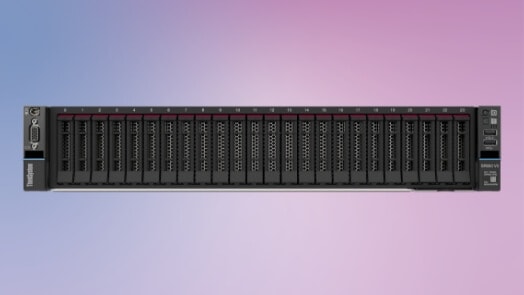
Optimizing Microsoft SQL Server 2022 on Lenovo ThinkSystem SR650 V3
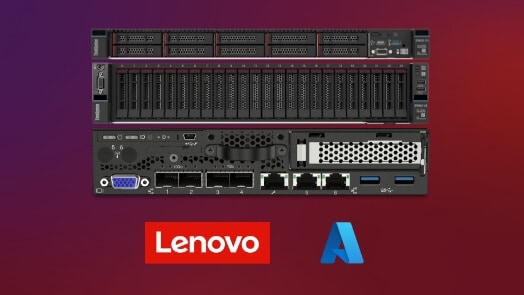
Microsoft Azure Services with SQL Server
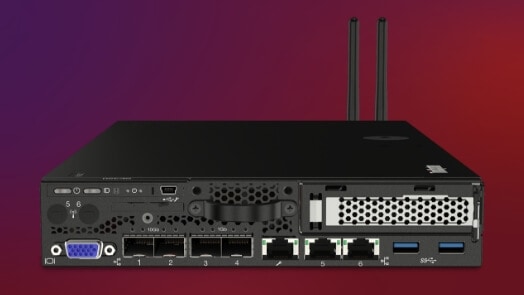
Analyze Data at the Edge

Enhance SAP HANA with Lenovo
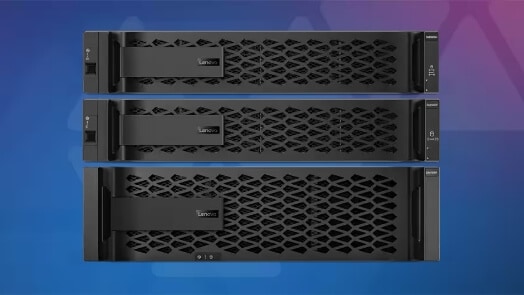
Lenovo Storage Solutions for SAP HANA

SAP HANA and the Cloud
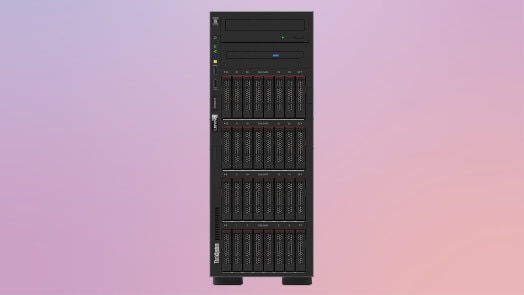
SAP Business One for Growing Companies
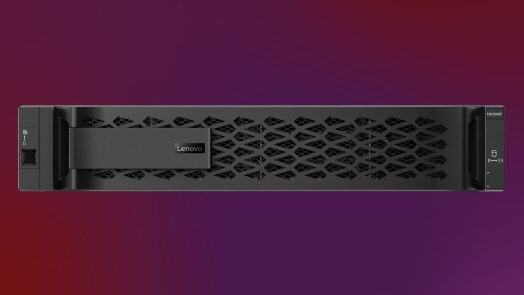
Oracle Database

Big Data

High Performance Computing

Artificial Intelligence
Products
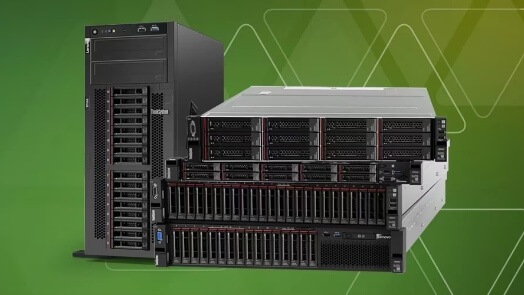
ThinkSystem servers
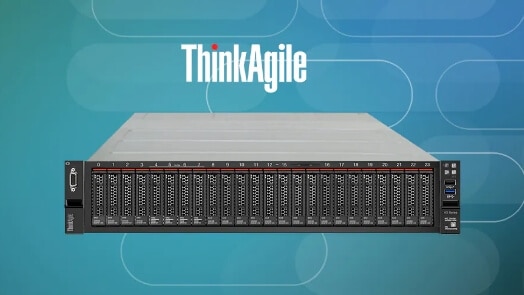
ThinkAgile systems
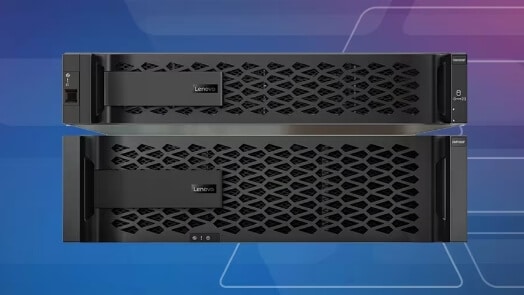
Storage solutions

TruScale IaaS
Resources
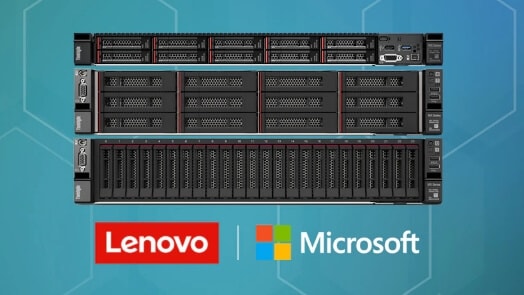
Using Azure Backup and Azure Site Recovery for business continuity

Servimed streamlines distribution with an as-a-service solution

Best practices for SAP HANA solutions on ThinkAgile VX
Services

TruScale Infrastructure Services

AI Services

Support Services

Managed Services
Need more information?
Fill out this form so a Lenovo representative can contact you.
Exploring Advanced Database Solutions for Business Growth
Managing data efficiently is a vital aspect of business success worldwide. The growing need for reliable and scalable database solutions, along with advancements in cloud-based database solutions, is reshaping operational processes. These innovations enable organizations to operate more effectively, drive innovation, and achieve sustainable growth.
These technologies have evolved beyond simple storage systems to become critical tools for optimizing decision-making, boosting efficiency, and propelling business intelligence. This guide outlines key concepts, highlights industry-best practices, and provides a roadmap to choosing the right solutions for your business goals.
The Role of Database Solutions in Modern Enterprises
At their core, databases are structured systems designed to store, retrieve, and manage data efficiently. By using database servers, these systems ensure data is accessible, secure, and scalable, supporting a wide range of applications. A database can handle various data types, such as structured text, files, and multimedia, providing flexibility for diverse operational needs.
4 Key Characteristics of Databases:
1. Data Organization: Efficiently arrange data for easy access and management.
2. Scalability: Adapts to growing data volumes without impacting performance.
3. Efficiency: Ensures fast retrieval and updates, even with complex queries.
4. Security: Protects sensitive information through encryption and controlled access.
3 Types of Information Stored in Databases:
- Customer Data: Stored on database servers, businesses like retail and banking store customer details such as usernames, preferences, and contact info, enabling personalized services.
- Product Information: Managed through database storage solutions, industries such as e-commerce and manufacturing use databases to track inventory, manage pricing, and monitor stock availability.
- Operational History: Activities and transaction logs are tracked in healthcare and financial systems using robust database servers, ensuring compliance, analysis, and system monitoring.
Powered by advanced database storage solutions, modern systems streamline data management while ensuring scalability and reliability, making them indispensable for various sectors like retail, healthcare, and education.
Types of Databases and Their Applications
To better grasp the extensive database landscape, understanding the key types of database solutions and their specific applications is essential. These database storage solutions cater to unique organizational needs, enabling enterprises to achieve strategic and operational goals efficiently.
4 Major types of databases for diverse applications include:
1. Relational Databases
Relational databases store data in structured formats, typically rows and columns in tables. A well-known example is Oracle database, which has been a trusted choice for handling transactional and structured data. Relational databases are engineered for operations requiring a high level of consistency and integrity across datasets.
- Applications: Relational databases are widely used in industries like banking and e-commerce to manage transactional systems and customer information. They are crucial for applications requiring data consistency, such as financial ledgers or inventory tracking.
2. NoSQL Databases
NoSQL databases offer flexibility for handling unstructured or semi-structured data efficiently. Unlike relational databases, NoSQL solutions operate without a fixed-schema, making them perfect for scenarios involving dynamic and diverse datasets, such as user-generated content or IoT data streams.
- Applications: These databases are ideal for social media platforms, where user content varies in format and volume. NoSQL solutions are also used in IoT applications, managing rapidly incoming sensor data.
3. Cloud-Based Databases
Cloud-based databases are transforming data management by offering scalable, cost-effective, and globally available solutions. These cloud-based database solutions minimize reliance on physical infrastructure while delivering enhanced flexibility.
- Applications: Cloud-based databases support enterprise resource planning (ERP) and customer relationship management (CRM) systems. They are also widely used for global-scale apps requiring high availability, like video streaming platforms.
4. AI Databases
AI databases are revolutionizing data systems by embedding artificial intelligence capabilities for real-time insights and predictive analytics. These AI databases transform raw data into actionable intelligence, streamlining operations in a variety of industries.
- Applications: AI databases are applied in healthcare to analyze patient data and predict outcomes for personalized treatment. Similarly, they are used in retail for demand forecasting, customer segmentation, and inventory optimization.
Enhancing Business Efficiency Through Database Solutions
Organizations thrive on data, and implementing advanced database solutions can transform business operations. From cloud database solutions to AI database technologies, these systems enable smarter decision-making, bolster productivity, and secure data integrity.
3 key benefits of implementing database solutions for businesses:
1. Scalability with Cloud Database Solutions
Cloud databases offer unmatched scalability, enabling businesses to adjust storage and computing power dynamically. This feature supports fluctuating demands while reducing dependence on physical hardware, fostering cost efficiency, and operational flexibility.
2. Drive Insights with Big Data Solutions
Big data solutions process and analyze enormous volumes of data, uncovering trends and actionable intelligence. Industries like retail and finance use these systems to predict customer behavior, optimize supply chains, and improve resource allocation.
3. Real-Time Decision-Making via AI Databases
AI databases integrate artificial intelligence for real-time analytics and predictions. Healthcare providers, for example, leverage these systems for immediate diagnostic insights and personalized treatment plans, boosting both efficiency and patient care.
Actionable Tips for Choosing the Right Database Solution
Selecting the right database solution is pivotal for efficient data management and organizational success.
6 Useful tips to optimize your database selection:
- Analyze project scope and data needs, such as structured or unstructured data, to determine the suitable database type.
- Prioritize scalability by opting for cloud database solutions that offer dynamic resources and reliable access as your business grows.
- Ensure robust security features in your database servers, like encryption and compliance, to protect sensitive information.
- Evaluate compatibility with existing systems to guarantee seamless integration and minimal disruptions during implementation.
- Consider advanced analytics capabilities in database solutions to derive actionable insights and improve decision-making.
- Check for reliable provider support and regular optimization to maintain the database’s efficiency over time.
Lenovo's Comprehensive Database Solutions for Businesses
Lenovo offers advanced hardware and software solutions to enhance database efficiency and reliability. By supporting platforms like Oracle database, SAP HANA, and Microsoft SQL Server, Lenovo enables businesses to optimize data-driven operations while adapting to changing demands.
4 Ways Lenovo transforms businesses with scalable database technologies:
Reliable Hardware for Diverse Needs: Lenovo’s ThinkSystem servers are designed for high performance and versatility, catering to database environments with intensive workloads. These servers ensure speed, security, and stability for mission-critical operations. ThinkAgile systems combine hyperconvergence for simplifying IT management while maintaining superior scalability.
Deployment Flexibility with Cloud Database Solutions: Lenovo’s cloud-based database solutions allow businesses to scale effortlessly, supporting both on-premises and cloud-based implementations. This flexibility helps organizations transition seamlessly to hybrid environments while optimizing costs and resource use.
Driving Insights with Big Data Solutions: Lenovo enables businesses to process large datasets with their big data solutions, providing faster analytics and actionable insights. This is particularly beneficial for industries such as retail, finance, and healthcare, where data-driven decisions are crucial.
AI Integration for Smart Operations: With Lenovo's AI-ready infrastructure, businesses can integrate AI databases to automate analytics and predictive modeling. Products like ThinkSystem SE350 enhance edge processing, ensuring real-time data handling for artificial intelligence tasks.
Unlock the Future of Data with Lenovo’s Scalable Database Solutions
Harnessing the right database solutions can transform how businesses operate, driving smarter decisions and greater efficiency. Whether you are a small startup or looking to enhance your business operations, Lenovo is your go-to option with scalable technologies like ThinkSystem and ThinkAgile series. These tailored solutions cater to the diverse needs of enterprises, from supporting hybrid cloud deployments to optimizing AI-driven insights. Lenovo empowers organizations to manage data with flexibility and reliability, ensuring they thrive in an increasingly data-driven world.
Ready to elevate your data management strategy? Explore Lenovo’s comprehensive database solutions today and discover how they can reshape your business for the better.




